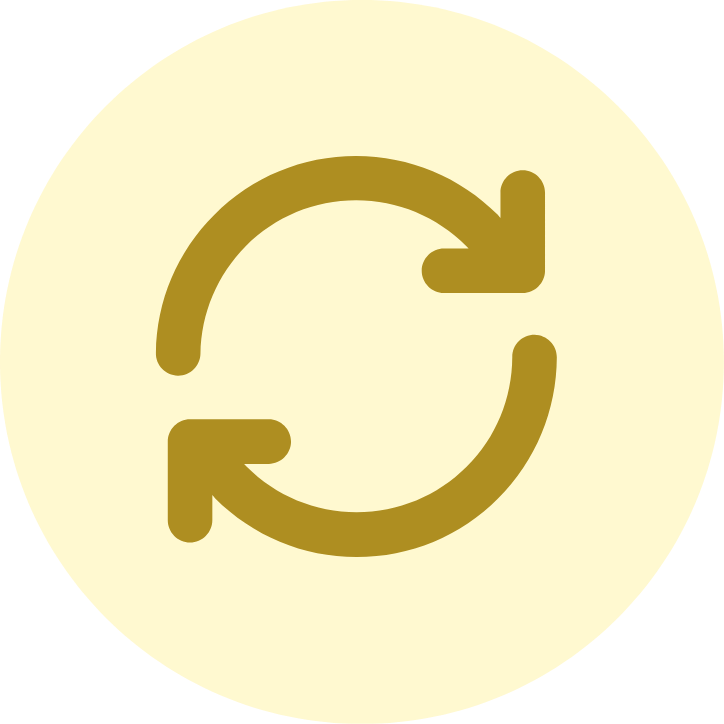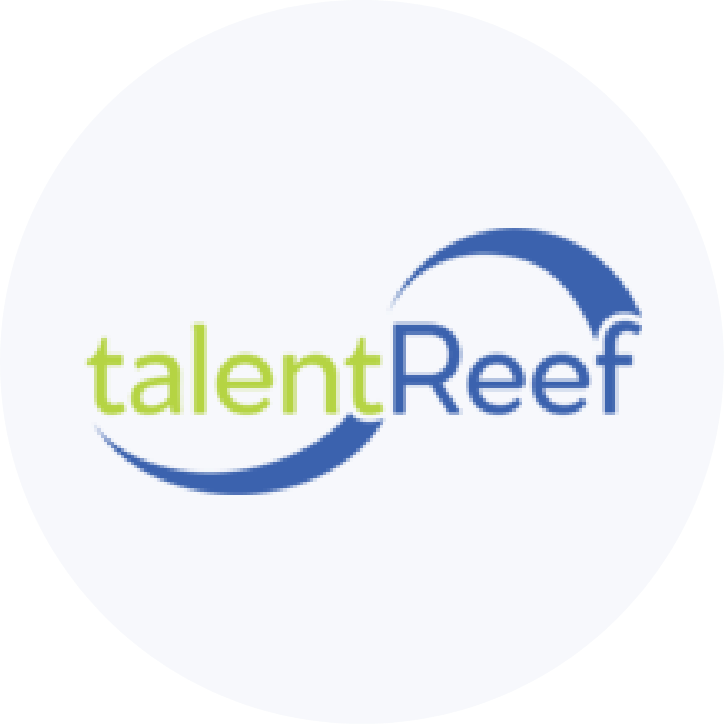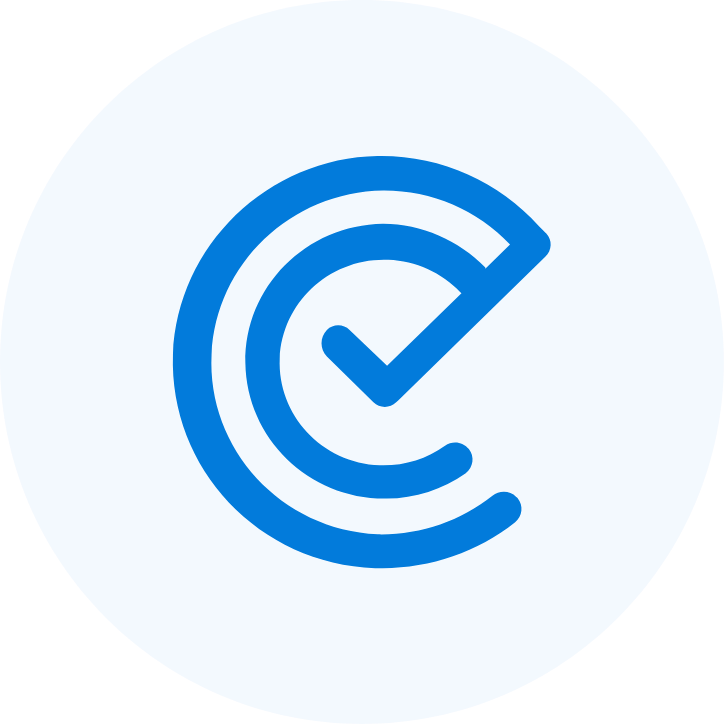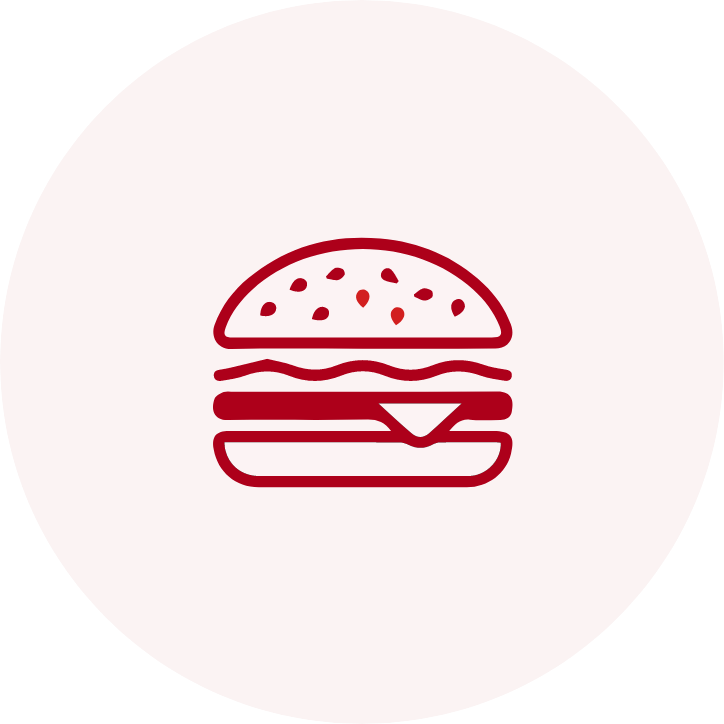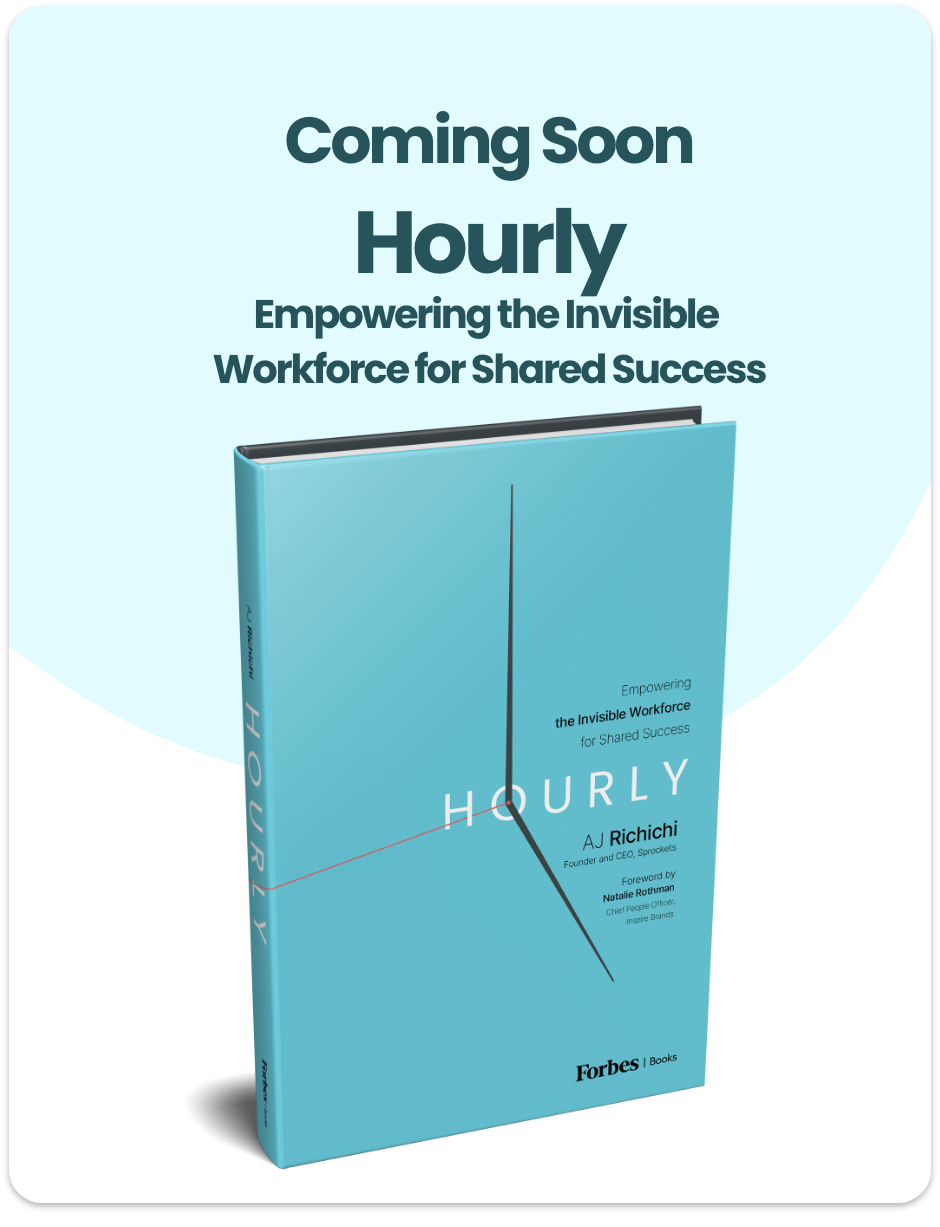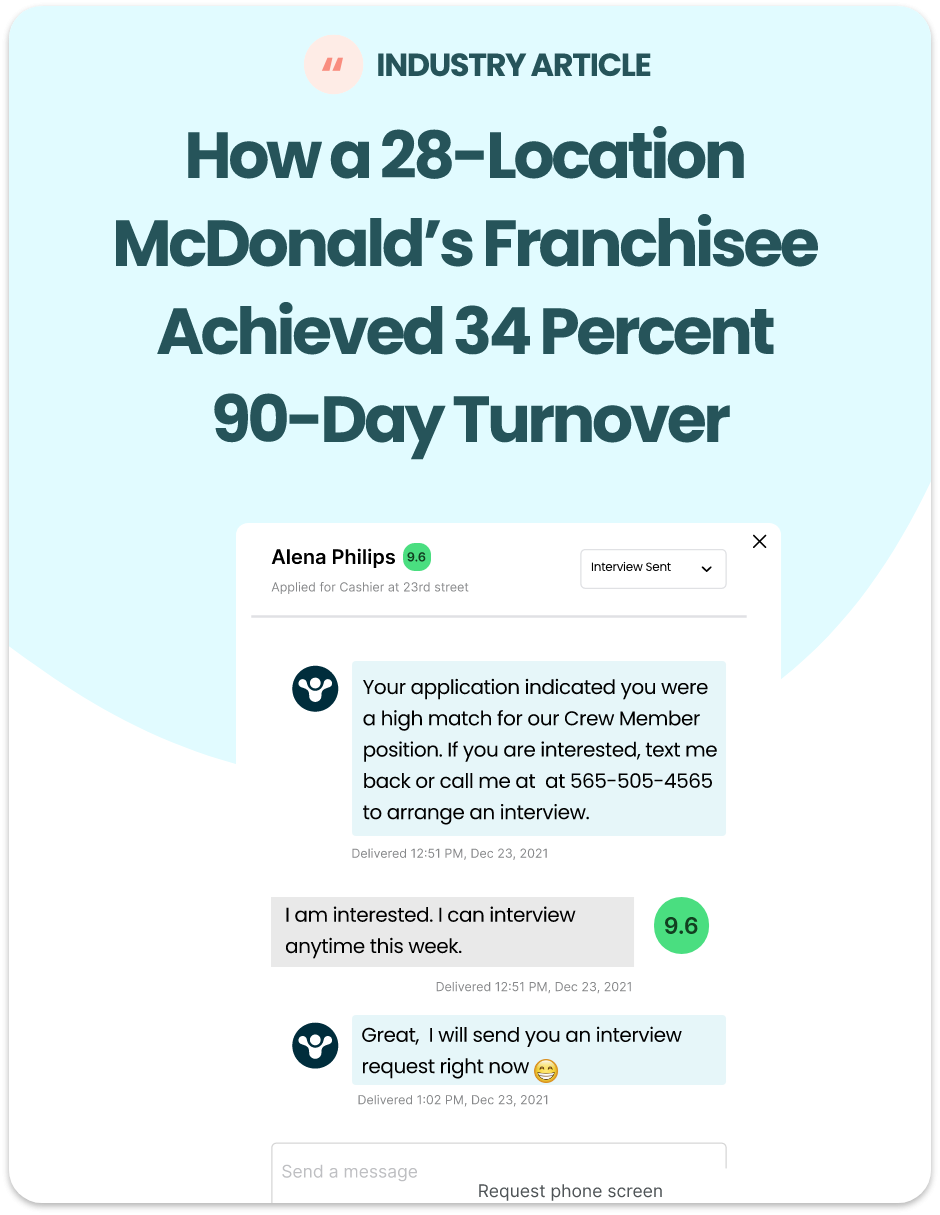Check out our second podcast episode of Talent Talk with our guest, Cameron Sorsby with Praxis discusses the different paths to career readiness with CMO of Sprockets, Chad Troutman. Cameron is from Praxis, which prides itself as an alternative to college for people to get real-world experience in the field they are interested in.
Chad | Sprockets:
Welcome to another edition of Talent Talk, glad that you could join us today for our podcast. This episode will feature Cameron Sorsby from Praxis. And he is the COO there and he’s going to talk to us about the importance of soft skills and not a college degree. So with that, I’m going to turn things over to Cameron for a moment so he can introduce himself and tell you a little bit about himself from his experience.
Cameron | Praxis:
Thanks Chad. I appreciate it. Uh, really excited to chat with you today. And just a little bit more about myself. I’ve been working for Praxis for the last five years. I’ve kind of seen it at its very early stages of doing about a dozen participants a year to growing it over where we’re consistently serving a hundred plus participants that are apprenticeship candidates and we place them in growing startups all over for the last five years. And it’s been not only a really fun ride, but also really interesting too to learn everything we have about, uh, both the kind of higher education, career development, uh, landscape as, as young people, you know, really start their lives as well as, you know, what are those, you know, major talent pain points on the company side as well. So it’s been a really interesting and an awesome experience so far.
Chad | Sprockets:
Ah, it sounds like it. And just for everybody on the line, can you talk to us a little bit about Praxis and why it’s formed up, what its mission is and what you guys do?
Cameron | Praxis:
Yeah, absolutely. So Praxis is a 12-month startup apprenticeship program and our founder started the program, like I said, about five years ago. And based off of his experience, you know, he kind of saw pain points and gaps on both sides of the market. He was working a lot with really very talented, driven young people through various education programs and organizations. And he just saw this trend of, you know, as more time went by, you know, these very driven, talented young people were dissatisfied with their college experience, both, um, because of, you know, the high costs that continue to go upward, but even more importantly, they just found themselves bored in the classroom. And, you know, they’re eager to get their careers off the ground and they just, more and more people kind of started to feel like college wasn’t serving their interests or preparing them for the career and connecting them with their initial career opportunities.
Cameron | Praxis:
We saw that side and then on the hiring side, he was also doing a lot of fundraising and meeting a lot of successful entrepreneurs. And, you know, especially, you know, even right around the ‘08 recession, you know, they’re telling them like, I’m still looking to hire all the time. The problem isn’t, you know, position openings. The problem is it is just incredibly difficult to find good, good talent, as we all know if you’ve ever been involved in the hiring process and, um, you know, we kind of took those two pain points and you know, I think we kind of went through the process early on and kind of continue to still do. We’re always fine tuning the program and I think the main question is like, what is the ideal transition to professional life for someone that clearly has a lot of potential but lacks the experience and context for their early career landscape and what does it take to help growing companies build out those entry level teams? That’s kinda how we’ve designed the program over time, answering know those two, those two questions.
Chad | Sprockets:
Absolutely. And now, so you’ve kind of already hit on something that I wanted to talk about, which was looking at if today’s topic is really focused in on the importance of soft skills and not a college degree. I wanted to start with thinking about what you’ve seen, what your experience has been like with the shift from focusing on the college degree of soft skills. What have you kind of seen out there, what’s happening? Because I know as an outside observer who did go, I mean, I went to college, uh, was a glutton for punishment. I went three times and got multiple degrees and for me it has served me well. I’ve seen plenty of other folks that it hasn’t. But, I’ve had a lot more experiences here recently of, uh, even one of my favorite mentors, Chris Brewbaker, his youngest son is graduated from high school and is going to do a year internship on a Dev team out in San Jose and not going straight into college. And then consider that, consider if he wants to go. Chris and I were of course both like, wow, that’s really awesome. That sounds like a good idea. And if we could go back, we would do the same thing. Save for, uh, what Chris said. He was like, I just feel like my son’s about to miss out on the four best years of his life. You know, we know what that really means is that the four best years of like sitting in a classroom is the social aspect of things. Uh, which does play into soft skills. I know for sure. But anyway, going back to the topic at hand, uh, thinking, I know that’s an experience I’ve had. What are you, what are you seeing out there? What is not just the need, but what are the people saying? What is pushing people to move away from college and go to soft skills and how are they doing it?
Cameron | Praxis:
Yeah, I think there’s a lot of associated but a little bit different points on this topic. Obviously it’s a big kind of PR kind of broad topic. But, um, the main thing that I’ve taken away from my experience with Praxis, you know, working on it for five years now is the typical process and kind of some of the trends I’ve seen are every six months to a year there are more and more people, both young people who are in the position of, you know, figuring out what they’re going to do after high school, as well as parents that are trying to help their young adults, you know, figure this out as well, that are questioning, you know, what is the value of my college x, you know, of pursuing a college experience. Whereas, you know, I’m 28 and when I was at that point, graduating high school, you know, I think probably 99% of my graduating class ended up in college. And it really just, even as far as back as 10 years ago, it wasn’t something that was questioned very much, like what is the best path after high school? And, and every year since I’ve been working on practice, more and more people are just, you know, approaching the college decision, uh, logically and with a little bit of skepticism and, and whether you decide to pursue a college education, uh, I think it’s the most important thing is you actually go through a thorough decision making process on whether that is the best choice for you. Because as we all know, it, it’s a very costly decision, not just financially, but more importantly in time you’re committing, you know, the average length to graduation now is over five years and you’re committing that much of your life to college. I think the best thing that people can do is to actually sit down and really think about it thoroughly, do their research and think through whether it’s the best decision for them. And I think there’s a couple different reasons why people are thinking through that a little bit more. As more time goes on, one is as it becomes more and more costly, you know, obviously it’s going to make you question that a little bit more as the price rises. I think the landscape of what, you know, young adult options are after high school is changing and it’s growing. Uh, you know, not just ourselves with practice as a program, but, with the spread of information through technology and internet, like there’s way more you can do on your own to prepare yourself for a career than there ever has been before. So you don’t need to go to these singular large institutions to get ready. Uh, and there’s a lot of other kind of alternative programs and different paths that you can take. The more competition that you can have in the higher education space, the better off everyone will be. And, you know, best case scenario that forces colleges to step up their game and to change with the time. So to keep up. I think it’s clear that the higher education spaces, it’s very bloated, uh, between both private and public universities and everything.
Chad | Sprockets:
Yeah, I can agree with all of that. And honestly solid reasons to really consider the college degree in that pathway or even like where, where you put it at if you delay it or anything like that versus other sides of things. And, you know, I, and just to justify the thinking about it even more and being choosy about where you start your career. Cause College you could look at, or any program like Praxis that is an apprenticeship and, you know, could technical colleges or technical schools, uh, or the beginning of your career, you’re in training if you will. So really putting a lot more thought into your career before jumping in and spending money on it is a good thing.
Cameron | Praxis:
I wanna put attention back on something you mentioned with, with a friend of yours, you know, his kid has decided to do the year-long internship after high school. I think that is the exact right approach. This really makes up our mission is that in order like every young person wants, every person you want to find, you want to eventually kind of discover a career that makes you come alive and figure out what is going to be more than just a nine to five job for you or for if, you know, you want to kind of keep your passions outside of your professional experience like Howard, you’re going to balance those things out. How can you set up the life that you ultimately want to live. And our number one thing is the only way you can pursue that is to start getting work experience as soon as possible. And that’s what our program is built around is getting you to the point where all right, you have a lot of promise and potential and we’re going to get you to the point where you are ready enough to go into a company on day one and start creating value for them. You’re not going to be completely lost, but it’s through that six month apprenticeship as part of the program that you’re going to take the major first steps and figuring out one you do like to do, where your strengths lie. And even more importantly, what you don’t like to do, what your weaknesses are, what are the things that you absolutely hate and you can start checking those things off so you’d never have to do them again within reason. And you know, throughout your career and especially in those kind of, you know, that first vital five years, that should all be about one, figuring out, getting closer to what you do want to do and what you don’t want to do and start building a valuable skillset so you can, you can be a valuable commodity. On the labor market and kind of pursue your path. So if I had one thing that I wish everybody would do, it would be get work experience as, as soon as possible. Start as young as you can.
Chad | Sprockets:
Absolutely. And I definitely agree with that side of things and I saw a lot of counterparts. So I grew up in the hospitality space and I grew up doing odd jobs as well to try to break free of just working over at the restaurant and things and got some good work experience myself and then kind of found my voice. And I felt like during the summer while I was doing all that, I had a lot of counterparts that were doing like community college, like classes and doing more academic stuff. So I definitely think that that brought a wealth of knowledge. And maybe, you know, maybe not, uh, not their way. So, but going back to skills though, one, I want to go back into that a little bit because the technical skills, once you figured out what you want to do or around the area of what you want to do, I’m of the belief that you’ve got that on the job training. They’re going to show you how they want you to do the job or you’re going to get the certifications that you can, you have the technical ability to do the job. What I’ve noticed across my career, uh, from hiring everybody from a line cook to helping out in the hiring process with c-suite individuals like a CEO for a large tech company. I’ve always heard somebody in the interview, I feel I feel this about that person. This person seems, you know, like they are like x.
And what I’ve always, what I always hear is more, this is their personality or this is what I think we can, we can work with this person. Or they have thse soft skills, uh, about them. They seem like a good communicator and all that. With your program and the folks that have gone through it and your experience of those skills, the non-technical skills, what are the ones that seem to be helping folks get career ready, um, to, to, to be, uh, you know, outstanding in the apprenticeship itself. What are, what are some of those qualities that they can focus on that you’re not going to get necessarily from an academic course nor from a technical course, but one that is more, again, on you, your personality in yourself, skills, what’s resonated market.
Cameron | Praxis:
Yeah, so we, we focus primarily on placing people into entry level non-technical roles. So sales, customer service, customer success, marketing, uh, you know, Jack of all trades types that are going to go to do a little bit of everything on a smaller team perhaps. And, and there’s, there’s definitely a few things that are, are crucial, uh, that, that kind of, if you look at it as like an 80, 20, uh, value propositions that are, that are going to be the most important. And, uh, I think, you know, there’s a few that some are easier to define, some are more like, you know, x factors and we can talk about that too. But, um, I think one having above average, very solid, uh, verbal and written communication is probably right off the bat. The most important thing if, if I’m looking at one of our, you know, applicants for our program, I need to know that you have the basics down and we’re going to help you, you know, get trained up to become a really strong professional communicator. But they’re just things you need to have right off the bat. And, you know, and in, in the, how they translate into the workplace are, you know, everything from being able to write, um, simple, concise, efficient emails to, to both your, your teammates, your colleagues and most importantly customers, um, and be able to, to speak with people clearly. Um, you know, and, and that’s, uh, kind of carries into the second thing we always look for is the more experience you have dealing with customers, the better off you’re going to be. And that’s why I think that’s one of the big reasons why it’s, it’s important to get, you know, work experience as early on as possible. Cause you, you know, there’s reasons why we place people in these kind of entry level non-technical is because you don’t need to have a lot of specific hard skills yet.And if you can come in and, uh, you know, build relationships with customers and prospective customers on the sales side, then you’re going to be able to, you know, create enough value that the business can, can justify keeping you on. And that first, you know, six to 12 months and then from there you can really start to explore, uh, you know, where, where your sweet spot is over time, but you gotta be able to provide that kind of upfront value. And, more than anything, I think it comes down to communication and you know, on top of that, you know, just being able to deal with customers appropriately, exhibit good judgment, knowing when to handle something yourself and knowing when, okay, I’m not sure what to do. I need to ask the best person on my team, uh, for them to kind of help me out here. And so I can learn. And then, and then finally, I, you know, I could, I could go on for days with this stuff, but the last thing, uh, I’ll say is being able to, to learn new things quickly. Um, and that goes everything from, all right, you have one type of customer interaction and you hadn’t, hadn’t experienced that before, but now that you’ve gone through that experience, maybe, maybe you didn’t handle it perfectly, but you’re learning from that and the next time it comes up, you’re going to be greatly improved from it. Um, and then also like, you know, being able to, you know, identify opportunities, you know, maybe your company doesn’t have a fully built out marketing team. Maybe they just have that one, a head of marketing and you can switch over from your customer service, day to day activities. And if you can identify ways you can start helping out the marketing team, uh, that’s incredibly valuable to, and really it comes down to being able to think like an owner. And, and I think all these things roll up into are you someone that can, can take initiative, um, and, and work really hard and, and what we kind of call that out practices, uh, forward to, are you going to be someone that kind of leans into your work experience? Not just do the bare minimum but, but really go above and beyond the call of duty.
Chad | Sprockets:
Absolutely. And now I love all of those. And, uh, one that I, I’ve always hired for or a skill that I’ve always hired for that, uh, is a piece of, a lot of what you said is critical thinking skills. Um, my, my belief is if somebody has been taught to be a solid, critical thinker that given enough time, honestly I think they can do anything. Um, but, uh, if they’ve got those skills, I can put them in a place to where I, I’m able to build trust a lot quicker with them because I, I feel as if, okay, is there going to break down this problem? Make wise decisions as you said, no win when to handle it themselves and no one to ask for help. So on and so forth. A know how to handle customer situations, um, in, in with the critical thinking skills. Uh, I believe they’re important because there are just going to be times where you have to think on your feet and you don’t have any help. And those are the individuals that shine brighter in those moments than those that, um, are very linear minded. Ah, don’t be, you know, kind of need like, you know, black and white. I hadn’t come across this situation before. What do I do?
Cameron | Praxis:
You don’t, you don’t want the employee that you need to, um, you know, kind of mapped out every, every 15 minutes of their day. And you know, it’s obviously early on you’re going to give them more structure, but what you’re looking for is that person that can develop into someone that can really own, own their contributions and think on their feet, like you said, and not think, you know, the, the really important thing about, you know, being able to identify those critical thinking abilities and on the hiring side and to, uh, develop them on your own side as an employee is you absolutely need to have a bare minimum. Uh, you know, you got to get above a certain floor that you’re starting with. But if you can go above that, that’s when I’m looking at a young employee and saying, all right, this person has potential, not just to be, you know, a solid entry level individual contributor, but someone that can really grow into more responsibility, uh, for my team and, and then I’m going to invest in them and, uh, and their professional growth, you know, over time. And, and that’s when it gets really fun from, from a managing standpoint. Um, and you know, those are the kinds of the gems that, that we try to hand deliver to companies for sure.
Chad | Sprockets:
Absolutely. And I think there’s a lot of them out there, a lot more of them out there than what we probably even think or just haven’t been nurtured properly.
Cameron | Praxis:
It’s so hard to tell from the hiring side, you know, who has that ability and who doesn’t because you know what, look at the typical hiring process that, yeah, your top, top of the funnel, you know, submit a resume, maybe answer a couple questions about yourself and, and resumes just don’t tell you enough upfront about a candidate. And especially if you’re doing a lot of hiring, you’re, you’re having, you know, you’re getting hundreds if not thousands of resumes per job, those things. And just incredibly, it’s an incredibly inefficient way to kind of identify those hidden gems. And, and I think, um, you know, there’s, there’s a lot of, you know, different approaches, um, that can be taken on the hiring side. One of, one of the things that I’ve been really excited about, something that, you know, we emphasize try to work with our hiring partners on, but I’ve also seen a lot of, a lot of companies are doing this on their own. They’re naturally kind of figuring out is to make the application process, uh, project-based as much as possible, like try to replicate what would it be like to actually work with this person on a daily basis as opposed to, you know, relying on what their formal credentials might be.
Chad | Sprockets:
Yeah, I couldn’t agree with that more. Um, that’s one of those things like for me, the, uh, uh, that’s the point in the hiring process usually now, once I’ve already skinnied it down to three or four individuals that I like to do is like let’s do, let’s do a project that doesn’t benefit the organization, you know, but one is that one that I can start to learn a little bit about you and, and asking questions even though even when it’s not project based, asking questions that make them talk to me, one of my most hated questions is tell me about a time where you exercised good judgment or were in a situation where, and like these are ones where candidates can be prepared and, and I think that’s great and all, but I’d rather give you a question that is more of a real world scenario of I have, I, you know, I have a need for a marketing manager who’s going to be nested in the customer success team, which you’re going to be handling all of their priorities as it relates to marketing.
But then leveling them up to me and telling me, you know, where our team’s resources should be deployed for content, so on and so forth. How are you going to prioritize the customer success, a work and then B, how are you going to communicate to me that something that they’re number one should be the entire marketing team’s number one. Because by the way, I have another one of you nested in the channel team, the sales team, the tech team. So all of them have a number one as well. How do you, how do you communicate? Why Yours? What are the points you bring up that yours should be number one and you get ’em, you get some great answers and you get some dud answers to that one. And, and I don’t think it’s just the, I mean, you know, a previous experience that dictates it because what I find is then they start asking questions. The good ones will ask questions along the way to figure things out. And then I’d get an idea of how their brain works. I get an idea of what their critical thinking skills are. So, yeah, there’s, there’s definitely great things to do there that, uh, in my belief is that the current hiring process is broken. Um, I, and, and I am a part of the problem. Um, I am an individual 100%.
Cameron | Praxis:
You got to tell me it’s broken for a reason. It’s a very challenging, you know, process. And, um, you know, I, I think obviously the companies that we love working with are the ones that you don’t have to have all the answers. Obviously if you do, then you probably don’t necessarily need our services. But you know, if you’re taking a more proactive approach, trying to figure things out, trying to test new things first, you know, the company that, you know, just kind of leaves it to there, you know, more bureaucratic HR system and it’s like, all right, this is how we, you know, hiring processes are done. We’re going to follow the letter of the law and, you know, just kind of a rolled the dice to see what we get. Yep.
Chad | Sprockets:
We’ve been doing it for decades, you know, we’re still here. Right. You know, that kind of stuff. And I just don’t, it it, it’s, uh, and I felt guilty in the process because, uh, you know, I’ve, uh, especially on the marketing side of the House, um, marketing and sales, um, but particularly on marketing positions, I get hundreds of applications.
Cameron | Praxis:
Right. Everybody wants to do marketing until they realize what marketing entails.
Chad | Sprockets:
Yeah. The, well that I could go on for that for a few days as well. So, uh, um, I, I’ve been lucky enough to grow up on a, the traditional marketing side as well as the digital marketing side. So I was right there in a nice little sweet spot. So, uh, it’s always funny whenever somebody that wants to be in marketing but they don’t want to do trade shows or something like that. It’s like, Hey, inbound digital marketing is great, but there’s, you know, there are other ways to reach our customers. I don’t know if you realize back in the nineties and eighties, we did it this other way too.
Cameron | Praxis:
Right. The, that’s funny you say that. I always tell our participants that are starting the program early on, we kind of help them figure out like, all right, what are, you know, it’s going to take you to your lifetime to really figure out what the best kind of career setup is for you. But you know, we want to help you figure out like what are the two or three best options to start with and we’re going to dial in in a little bit. And, and we, you know, I think young people, especially they, they’re naturally attracted to marketing, they associate with creative work and you know, influencing people’s behavior, which is great. And, and I tell them, you know, if you’re going the best marketers, they loved sales first and foremost. Cause that’s, that’s all marketing is and sales ads at scale and, and, uh, if you’re not willing to, to jump into, you know, an early sales role, then the chances of you being a great fit on the marketing team are, are splinting slim to none in my, in my experience.
Chad | Sprockets:
Well, I mean yeah, that’s why I’ve almost taken myself, I’d taken to saying demand generation cause then it’s a good all encompassing thing cause yeah, my content writers all the way up new, okay, your skillset is his technical, but your, your, your purpose here is most certainly uh, going to be to help this company grow and to grow. We had to close business. Um, and so everything you do is actually an activity that’s going to influence real world dollars. So the, the folks on my team that were bought on, bought into that were ridiculously successful and then highlighted with inside the company, those that didn’t, uh, struggled because they couldn’t, uh, their work didn’t connect to the bottom line and it didn’t have the same impact, uh, and didn’t get the same focus. Nobody was really excited about it as like, that’s really cool that you got x amount of likes on some post, but what did it bring in? And those that can show that, uh, that technical side and show like what your work produced or the ones that they, they definitely stand out. But I know I’m, I, I’m getting on my soap box about marketing there and getting into that side.
Cameron | Praxis:
I mean, it’s great. It’s not there. There’s pretty much no unique cases with, with all of, you know, this talent development and identify identification stuff. Like everyone has very similar experiences and, um, you know, Talon especially, it’s really interesting just kind of landscape. It’s, it’s human, you know, you’re dealing with kind of the essential of human nature. Like how do people go about their, their professional life. So it’s interesting.
Chad | Sprockets:
It really is. Um, uh, but, uh, going, going into things I want to do a, I want to cover two more topics real quick with you and one is, uh, love to get a few more of your thoughts about the future of hiring entry level employees. Um, because that’s a, you know, what most folks are looking for. Um, otherwise they’re hiring internally and it’s kind of a different process. And then too, outside of hiring, you know, the future of hiring entry level employees and how that might change, uh, uh, also getting just a, some advice to the people that are on the side of the table where they’re actually in charge of hiring way. If you had a moment to talk to that hiring manager, what kind of advice would you give to them and regards to hiring entry level employees?
Cameron | Praxis:
Sure. Yeah. I think there’s, I think the entry level hiring kind of problem. It, it boils down to, uh, again, like a two, two sided issue. Companies don’t know what, what are the most valuable signals to look for in candidates and, and young young professionals do not know what are the most important things to signal to a hiring team. Um, you know, on the, on the candidates side, you know, think about a 21 year old that really lacks a lot of career context cause they just don’t have a lot of experience and, and they’ve been in a formal education environment for their entire life. And you know, they’ve, they’ve basically been told that, you know, if you take these steps and you know, get to the point in your life where you have that college degree, you will get a job, people will want to hire you.
And so they’re, they’re kind of going through that, you know, career prep, career readiness experience, very passively. They’re just telling their, just doing what people are telling them to do. And you know, that whole structure is based off of, you know, can you sit in a classroom, you know, follow the, uh, the directions of, of the professor, of the teacher and, you know, be able to get, uh, you know, A’s and B’s essentially. And as we all know, like your work isn’t judged on, on A’s, on, on a grade system. It’s, how much value can you create for me as an, as an owner. And so they, they just lack complete context of what would be valuable to a company. Um, and they’re not really thinking of it from a perspective of, okay, if I’m interested in working for Sprockets, they have this position on their team that I’m interested in, you know, say a customer success position where you’re going to be pretty much managing customer accounts and in helping them solve their problems and, and making sure they have a great experience with us.
Um, you know, they’re not thinking through like, okay, what are the skills needed for that role and how do I prove to send to you up front that, that I have them and I have the potential to, to pursue this job they’re thinking of, here’s a list of credentials that everybody’s telling me I need for these entry level roles, including things including the hiring company. And as long as I have these, if I send enough resumes out, you know, I’ll, I’ll get, I’ll get my dream job and as long as I just, you know, get to x amount of resumes submitted, I’ll be, I’ll be good to go. Um, and then on the hiring side, you know, I think, uh, the job description is just as counterproductive as the typical resume is. It does not tell you anything about what it will be like to be in this position.
It doesn’t describe for the audience of entry-level candidates that don’t have a lot of context for what it tastes like succeed in a given role and what it would be like a, you’re not going to any more than what you currently know by, you know, bullet points like, you know, 20 sales calls a day. I need you to, um, you know, it exhibit great customer, you know, keep our customers happy essentially. And you know, these, especially these marketing positions, I see a lot of entry level postings where, you know, we need you to be, um, you know, familiar with these, these tools and to be able to um, you know, be analytically driven. Like what is, what does that mean to someone that hasn’t had that experience yet? And then the second part of it is not only does it not provide great context and help the kind of candidate like imagine like, all right, you know, hey, maybe, maybe you were, you know, a camp counselor and you’ve had to, you know, exhibit great leadership with other counselors and uh, you know, get, get kids to, to listen to you and take your lead and you know, those strong communication skills like, you know, showing them like how those things could potentially actually translate to be very good and a certain entry level position.
But people, companies do not treat their hiring process as a sales process. And that’s what it is. At the end of the day. I, you need to be showing these entry level candidates what they’re getting out of it, why they should be excited to work for you over the other companies that are, that are seeking their, their services. Um, so those, I think those are kind of the two big things. But I think at the end of the day, companies, again, it’s a very passive process of alright we’re going to rely on, you know, formal education credentials to qualify our top of the funnel instead of really taking a proactive approach to, you know, how can we actively identify someone that’s going to be great on the phones with our customers, can, can think critically through, you know, cannot just do the job day to day but can improve those processes and really think about like what those skills look like and, and then how to identify one.
And that’s what I’m really, that’s why I think Sprockets is really cool because it helps companies. I’m going to give you guys a little shout out here. It helps companies actually starts thinking from a, you know, who is successful in this type of role and how can we find more of them? And then I think the second step of that process, something I’m really passionate about is how do we, how do we find that person? What do they look like right now, and how can we help them reveal themselves to us and, you know, obviously, be attracted to working with our team.
Chad | Sprockets:
Well, I definitely, uh, of course not only appreciate the insights, but in particularly, uh, appreciate the plug, um, for Cynthia in there and, uh, uh, is most certainly why I got into, into this. I think, uh, you know, we’re both in these, in our respective positions because, uh, we’ve recognized some things that need improvement, uh, from the education standpoint to be job ready. Uh, practice is most certainly noticed that there’s still work to be done there. And from my side, um, you know, I, again, getting a lot of applicants on the marketing side and then also being in the restaurant space, um, you know, seeing people, like a lot of folks start out, you know, while they’re in college or while they’re in high school or whatever else, or it’s a career, um, in, in either hospitality or retail. And I’ve seen just along the way, uh, a system that lacks, uh, any sense of like, balance or fairness.
Um, and then honestly like, uh, you know, one of the things that I have been, um, a complicit in is not actually, I mean, if we want to put a lot of value on a resume and I do believe a resume has, has value. I know I have not thoughtfully reviewed every single resume that’s come across my desk, which means I have not been thoughtful about every candidate that’s come across my desk, which is unfair. And that is, uh, quite frankly a failure, a failure on my part because I can miss out on that diamond in the rough kind of thing that maybe doesn’t have the exact word on their resume that was looking for, or something else or somebody that was in an interview that is somebody that maybe isn’t as gregarious as I am. So they don’t seemingly aren’t as like outward going and [inaudible] or something like that and don’t have what I mean is and leaning into is not having a great interview.
And I think on both sides of the table right now with the apprenticeship that they go through with you guys. And then on our side, our ability to dive deeper into somebody, you know, well one your best people skillset and then benchmark everybody, uh, coming in against that a profile we’re giving folks, uh, we’re giving, I think folks across the board, a fair shake in the, uh, in the hiring process and in the market that they can, their, their experience coming in entry level means something. And so does their personality and their soft skills. It means more than just, well, did you get a piece of parchment from a four-year university? Um, so I love this.
Cameron | Praxis:
So there, there are two things I think are kind of specific action items I would give hiring managers. Um, one related to resumes. There’s a reason why you don’t look at every resume because even if you look at all of them, the resumes are not going to be able to help you discover that hidden gem is going to be other things that you find out about that person that are going to actually reveal it if they’re kind of that hidden gem type. And in that, you know, if you’re just sticking with resumes then you know, maybe that’s a reason for emphasizing, you know, more candidates getting through like the screen call process or, or whatnot. But my big recommendation there is instead of making the first step of your hiring process some type of, you know, typical resume submission, it’s to start with some type of project based assignments.
Companies are scared off by this a little bit, for one particular reason. But if you start your process with, hey, let’s take a basic sales hire entry level, you can do an assignment where, all right, here’s a word doc, first thing you do is in your own words, describe who our target customer is. And then the second thing is, you know, create a spreadsheet of 20 potential leads and find their contact information. Third thing is, you know, draft what you think the first cold email in a sequence should be. And then you know, you can have some, a fourth thing of like, you know, kind of explain why you picked that target customer, that target prospect and why you, you know, pick these 20 on your spreadsheet and you know, you can give them more guidance. So it’s clear what to do and everything.
But that basic process, it’s at minimum it’s going to show you who’s actually willing to put in the work as opposed to, you know, having everybody just send generic resumes out to hundreds of different opportunities. And your company might be one of them. So it’s gonna make that top of the funnel more efficient. And I think that’s the start of really finding people that have the combination of work ethic, critical thinking ability and an initiative that you really want for those entry level non-tech roles. And then the second thing is kind of a broader, I’m, I’m really interested in seeing companies kind of take a more trial based approach to their entry level hiring. And obviously that’s how, that’s why our apprenticeship is set up as like the way I described as a companies is the six month trial period. You know, you’re, you’re not, you’re not hiring that full time salary candidate quite yet because it’s, it’s kind of 50, 50 with entry level hires.
So we’re gonna allow you to, to take on an apprentice at a little bit below market price that you’d be paying and you’re going to actually get to work with them for six months. And if they proved to be valuable, you can hire them on a more permanent basis. Um, but this would also include things like, I think, you know, all the, all of our early hires that practices, they’ve, they’ve worked for us on a, you know, anywhere from a freelance temporary position or, or straight up doing free work for us cause they’re just so excited about what we’re doing early on. And those have been where all of our best hires have come from and, and there’s really no way to replicate what it’s like to work with someone. So the more you can reduce the risk and, and, uh, increase the reward, uh, and that type of experience, I think the better off companies will be. And that’s why I think everything from, you know, apprenticeship programs to, to freelance to project based, you know, uh, assignments early on in the hiring processes is really the way to go. And, you know, the, the best companies that invest in their talent development, I think are on the right track with those things.
Chad | Sprockets:
Yeah, that makes good sense Cameron. And, uh, I definitely appreciate those insights and I’m sure that our audience has as well. Um, but with that said, I’ll go ahead and wrap us up for this time. I Know Cameron, that I’m gonna want to have you on again, cause there’s a lot more for us to explore here. So I hope, hope we can do that in the near future. Um, but absolutely. We’ll go, we’ll get you on here soon. For today, uh, we’ll sign off here at talent talk and, uh, we’ll see you for the next episode and hope everybody has a great day.


